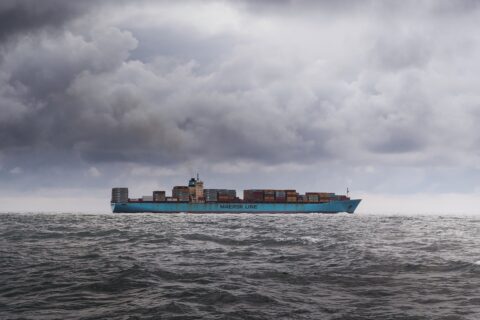Shipping containers are the backbone of international trade. They are used to transport everything from coal, food and clothing to electronics, cars and building materials.
The size of a shipping container affects the cost and weight limitations of what can be shipped in it. With more than 18-20 varied sizes available, it can be difficult to determine which is best for your needs! Here is a guide that will help you find the perfect shipping container for your next shipment (or for your business).
Why are shipping containers important?

Shipping containers are important because they are used to transport goods all over the world. The cost and weight limitations of a shipping container will change depending on size, which can be difficult to determine. The following guide is designed to help you find the best size for your needs!
Choosing the right size to ship your goods
The most popular sizes of shipping containers are 20 or 40 feet long and 8’6″ wide. You can even find containers that are open on both ends (twin hulls) that are up to 65 feet long. When choosing a container, think about what you will be shipping and how often you will be transporting it prior to deciding on what size to purchase.
If you are frequently transporting heavy items, then an extra-large (42 feet) container is needed so they can fit comfortably in there without becoming damaged or spilling their contents. If you are shipping bulky items like furniture or cars, then a standard-sized container is recommended as they will be easier to load into and out of the ship containers. If you are just shipping clothes or small packages that will not exceed 100 pounds, then a standard 20-foot container should suffice.
Whatever your needs may be, make sure you choose a size that best suits your needs!
Understanding the container’s specifications
Shipping containers are available in a variety of sizes. The size can be important when it comes to calculating weight and cost.
The larger the container, the more capacity it will have and the more it will cost to ship. This can be confusing for those who do not know how much they need to ship since the cost is often not always proportional to the size of the container.
Companies may rent containers to save on costs and then return them after their use to make room for new merchandise.
Container size also affects what can be transported within its walls. For instance, a smaller container might hold a few cars or one small piece of machinery, but not at once. Larger containers have greater volume restrictions for what items can fit inside.
It is important to know that even though you may find one shipping container somewhere that meets your needs perfectly, it may not be available in another location (i.e., you will want a 40-footer in New York City but only 20s are available). So, if you are shipping internationally, you will want to plan and choose wisely before shipping your cargo.
Considering the price shipping containers typically cost anywhere from $1,000 to $6,000 each. The size of the container will also affect the price. For example, a standard 20-foot container will cost around $2,500-$3,500. A 40-foot container can cost anywhere from $4,000 – $4,500. The type of container also influences its price.
It’s up to you to decide whether you want to purchase a new or used shipping container. You may consider how often you will be using the container before making your decision; if you are going to use it repeatedly and/or need space for goods taller than six feet high, then a larger size like 20 feet would be best for you!
You should also take into consideration whether this will be your first time buying a shipping container or if you already have some on hand. If this is your first time buying a shipping container, it is worth considering whether you will need additional storage space for it as well (to store it before use). Lastly, make sure you get what you pay for! You do not want to buy an old worn-out container just because it is cheaper! An old container could break down on your delivery route causing delays and other issues.
ProConnect Integrated Logistics for Ocean Freight
If you think Ocean Freight could be helpful and prove to be efficient for your shipping operations, talk to us. We help companies across several industries with their logistics needs, including cross-docking. We possess the experience and the expertise required that can help you reduce costs, achieve faster turnaround time, implement more efficiency, and offer strong partnership.
Know more about shipping/ logistics industry by checking out our previous article on Your Guide to the Ocean Freight Must-Knows: What to Know When Shipping Overseas
Still have questions? Looking for a quote? Contact us today.





 APP DOWNLOAD
APP DOWNLOAD